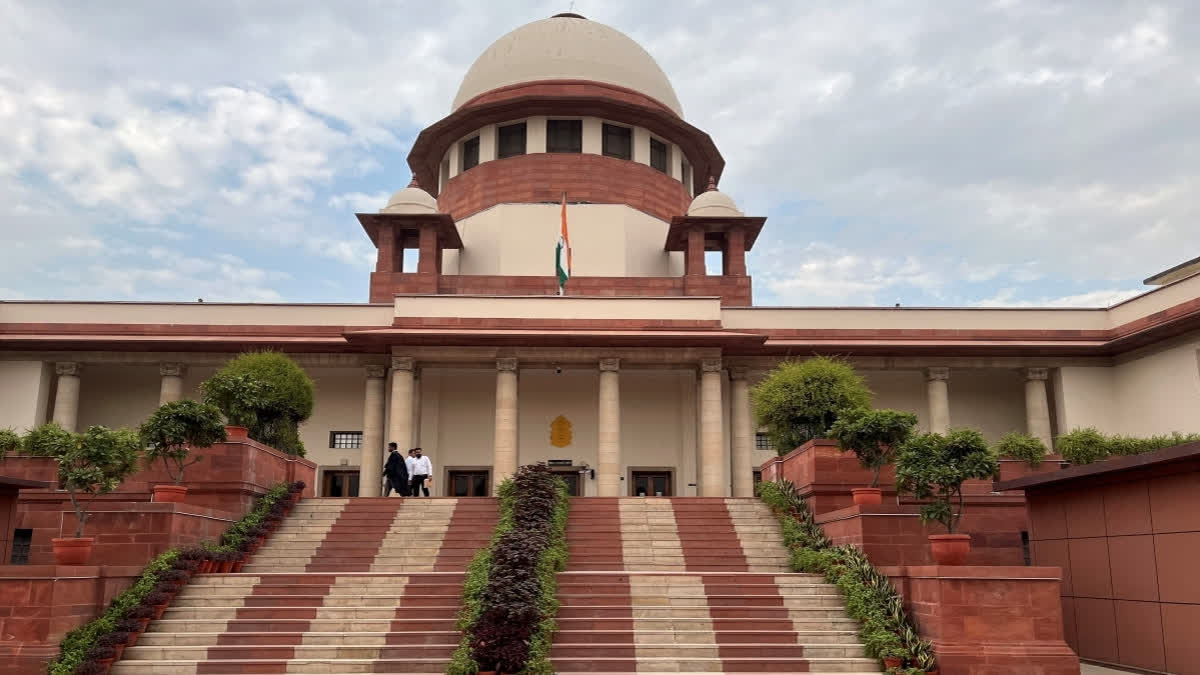New Delhi: The Supreme Court has said that trust serves as the cornerstone, forming the essence of the insurer-insured relationship and, the heart and soul of an insurance contract lies in the protection it accords to those who wish to be insured by it.
The apex court made these observations while dismissing an appeal by New India Assurance Co. Ltd and others against an order passed by the National Consumer Disputes Redressal Commission (NCDRC), which partially allowed the consumer complaint directing the insurance company to pay Rs.6,57,55,155/- for a fire insurance claim.
A bench comprising justices Hrishikesh Roy and Sanjay Karol said: “In the realm of risk and uncertainty, individuals and organisations seek solace in the bastion of insurance – a covenant forged on the bedrock of trust. Trust serves as the cornerstone, forming the essence of the insurer-insured relationship”.
Justice Roy, who authored the judgment on behalf of the bench, said the fundamental principle is that insurance is governed by the doctrine of uberrimae fidei – there must be complete good faith on the part of the insured.
“The heart & soul of an insurance contract lies in the protection it accords to those who wish to be insured by it. This understanding encapsulates the foundational belief that insurance accords protection & indemnification, preserving the sanctity of trust within its clauses. Effectively, the insurer assumes a fiduciary duty to act in good faith and honour their commitment”, said Justice Roy, in a judgment passed on November 24.
The bench stressed that in light of the vital role that trust plays in insurance contracts, it is important to ensure that the insurer adequately fulfils the duty that has been cast on it, by virtue of such a covenant.
The NCDRC, in an order passed on August 10, 2022, partially allowed the consumer complaint directing the insurance company to pay Rs.6,57,55,155/- for a fire insurance claim with nine per cent interest from the claim denial date within eight weeks or face 12 per cent interest beyond the stipulated eight weeks. The insurance company moved the apex court against this order.
A fire broke out at the warehouse of the insured on March 14, 2018. Mudit Roadways (respondent) informed the insurance company and the customs authorities about the same. After receiving the survey and investigation reports, the insurance company, with their July 15, 2019 communication, rejected the respondent's claim.
In their subsequent communication (December 14, 2019), the following two reasons were stated: 1) The insured premises were unaffected by the fire, and 2) The fire resulted from the insured's negligence during roof construction in a secure customs-bonded warehouse with hazardous chemicals. Construction work in the warehouse increased the risk, causing insurance coverage to cease under Clause 3 of the policy's terms and conditions, the company said.
The respondent, dissatisfied with the aforesaid repudiation of the claim, filed a complaint under the Consumer Protection Act, 1986, citing service deficiencies and unfair trade practices by New India Assurance Co. Ltd.
The NCDRC ruled in favour of the complainant concluding that the insurance policy covered the complainant's warehouse and added that reports suggesting an electrical short circuit as the cause of the fire were found to be more acceptable, and ruled in favour of the insured finding deficiency in service of the insurance company.
It was argued before the apex court that multiple reports from different govt. departments as well as independent surveyors supported the conclusion that the fire had occurred on account of a short-circuit. On the aspect of the violation of insurance policy conditions, it was argued that roof repair work was being carried out to address the water leakage issue from the warehouse roof.
The insurance company in their letter mentioned two specific grounds to repudiate the claim: (i) that the location of the fire was part of the premises not covered under the insurance policy, and (ii) that there was negligence on the part of the insured in carrying out repairs at the roof of the warehouse which caused the fire
The bench said such essential repair work on the rooftop by itself, cannot be reasonably construed to be an alteration that would increase the risk of loss or damage, as has been urged by the insurance company.
The bench said the forensic investigator's conclusion that sparks from rooftop welding caused the fire appear to be illogical, as they overlooked other potential causes like short-circuit. Negligence despite workers not being involved in welding-related tasks near the time of the fire, was wrongly attributed to the insured, it said.
The apex court said evidence was not available that sparks fell on flammable chemicals attributable to activities undertaken by workers. “Of the nine reports, seven suggest short-circuit as the likely fire cause, while two infer negligence on the insured's part, for inadequate precautions, during warehouse construction”, said the bench.
The apex court said logically if it were the welding sparks which caused the fire, it should have occurred shortly after 11:54:27 during the welding works or around 16:04 hours during rooftop repair and the 4 hours 19 minutes 43 seconds time gap is startlingly significant.
Read more



